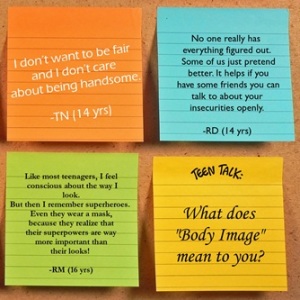
Breaking the Silence on Sexual Difficulties
Sexual difficulties are about as common as eating or sleeping disorders. Research shows that sexual dysfunction affects about 43% of women and about 31% of

Sexual difficulties are about as common as eating or sleeping disorders. Research shows that sexual dysfunction affects about 43% of women and about 31% of

If you’re new to the term “emotional eating,” reflect on these questions below: Do you eat to feel better (to comfort yourself when feeling upset,

I feel so worried
I’m extremely sad today
I’m very very angry
A feeling is equal to some thoughts and a state of mind – is that it though? When you speak of sadness, anger, fear, despair what do you think these emotions really include? A lot of us mistakenly believe that emotions are just about some thoughts and the way one feels.
This understanding is hugely incomplete
Emotions have a big, big manifestation in the body too. In fact, the body is the seat of emotions.

Body Image is what you think and feel about your physical self or your body. As you enter adolescence, “body image” takes center stage and you will have days when you start to feel awkward and uncomfortable in your body. This article introduces you to a healthier and more positive way of looking at yourself and your body.

We specialize in combining psychotherapy with deep wellness practices like mindfulness and meditation and creating a customized mental health plan for individuals and organisations.
We specialize in combining psychotherapy with deep wellness practices like mindfulness and meditation and creating a customized mental health plan for individuals and organisations.

A young woman from another country moved with her family to live for one year in a town near the monastery. When, in the course of the year she discovered the monastery, she would periodically visit to have discussions with the Abbess. The Abbess introduced her to meditation, which became very meaningful for the young woman.
When the family’s year-long stay was drawing to an end, the young woman asked the Abbess, “In my country there is no Buddhism and no one has even heard about meditation. How can I continue to learn and deepen the practice you have started me on?”
The Abbess said, “When you return home ask far and wide for who, among the wise people, is recognized as having the greatest ability to listen. Ask that person to instruct you in the art of listening. What you learn about listening from such a person will teach you how to further your meditation practice.
― Gil Fronsdal, A Monastery Within: Tales from the Buddhist Path